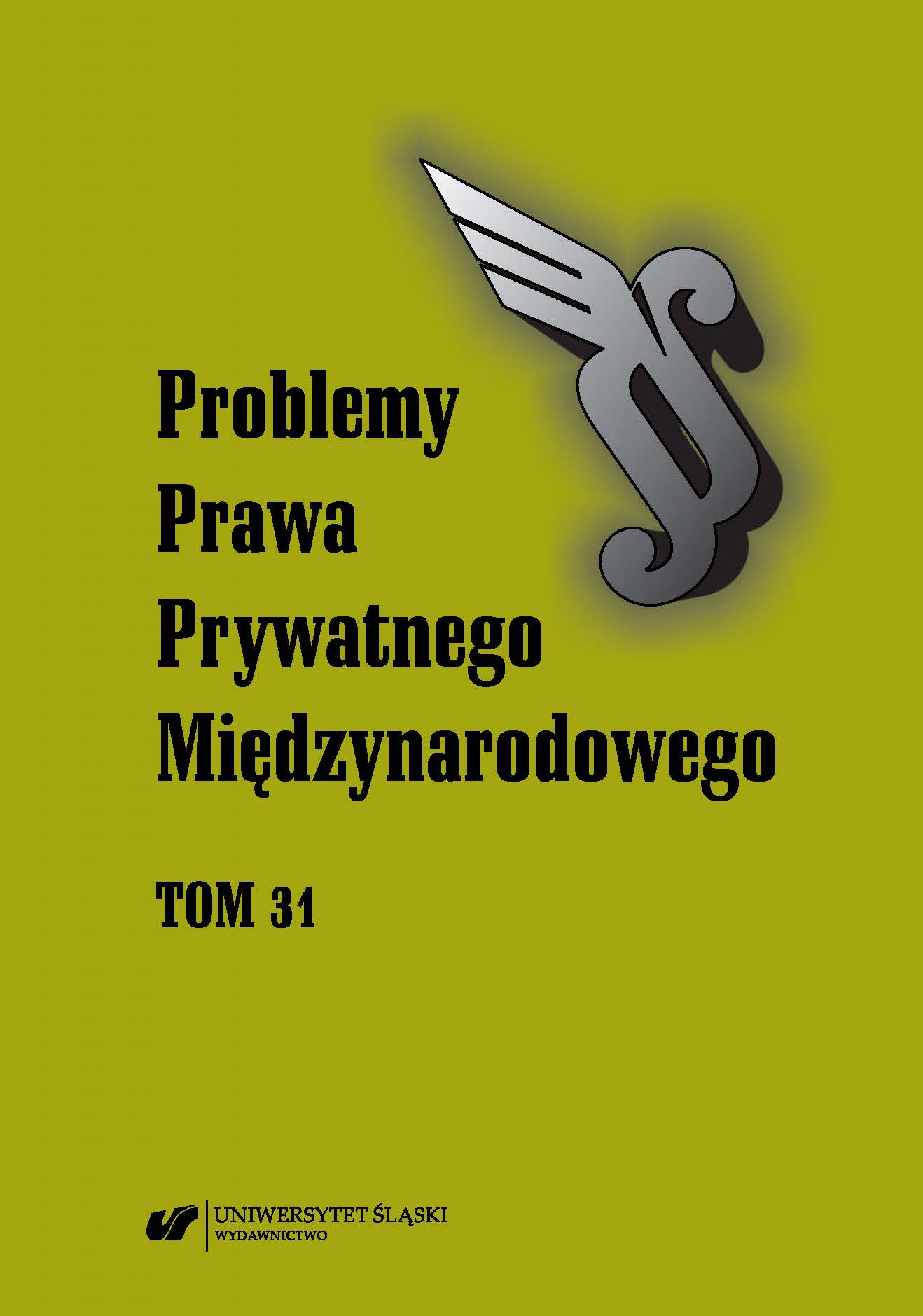O podstawach stosowania wobec dzieci ukraińskich rozstrzygnięć opiekuńczych przewidzianych w ustawie o pomocy obywatelom Ukrainy w związku z konfliktem zbrojnym na terytorium tego państwa
On the Legal Basis for Applying to Ukrainian Children the Guardianship Decisions Envisaged in the Act on Assistance to Citizens of Ukraine in Connection with Armed Conflict on the Territory of This State
Author(s): Michał WojewodaSubject(s): Law, Constitution, Jurisprudence, Civil Law, International Law, Court case, Labour and Social Security Law, Russian Aggression against Ukraine
Published by: Wydawnictwo Uniwersytetu Śląskiego
Keywords: war refugees; applicable law in guardianship cases; jurisdiction in guardianship cases; conflict mandatory rules; temporary guardianship; parental responsibility
Summary/Abstract: The Act of March 12, 2022 on Assistance to Citizens of Ukraine in Connection with Armed Conflict on the Territory of Ukraine introduced the possibility of establishing temporary custody for minor citizens of Ukraine who — following the war in their home country — found themselves on the territory of the Republic of Poland without the protection of adults (Article 25 of the Law). The author seeks to determine what are the grounds for the application of the above-mentioned provisions of Polish law to Ukrainian citizens while examining the grounds for asserting the domestic jurisdiction of Polish courts in temporary custody cases. Despite the existence of a 1993 bilateral agreement in Polish-Ukrainian relations, which contains conflict-of-law rules on applicable law and jurisdiction, the 1996 Hague Convention on Parental Responsibility, to which both Poland and Ukraine are parties, takes precedence in guardianship cases. Article 6 of this convention stipulates that for the children who, due to disturbances occurring in their country, are internationally displaced, the authorities of the country on the territory of which these children are present as a result of their displacement have jurisdiction. Article 15 of the Hague Convention, on the other hand, stipulates that the authority that has jurisdiction applies its own law. The author notes, however, that the Polish legislator has not referred to the above-mentioned conflict rules justifying the jurisdiction of Polish courts and the jurisdiction of Polish law, but seems to treat the provisions on temporary custody as the international mandatory rules (lois l’application immédiate). It is also unfortunate that Article 25 of the Act refers to Polish law with regard to the premise of a minor present in Poland unaccompanied by “responsible adults.” However, the author contends that the point of reference here must be Polish conflict of laws (and not family law), which leads to the conclusion that the determination of who is responsible for the child should be determined on the basis of Ukrainian law.
Journal: Problemy Prawa Prywatnego Międzynarodowego
- Issue Year: 2022
- Issue No: 31
- Page Range: 81-101
- Page Count: 21
- Language: Polish

